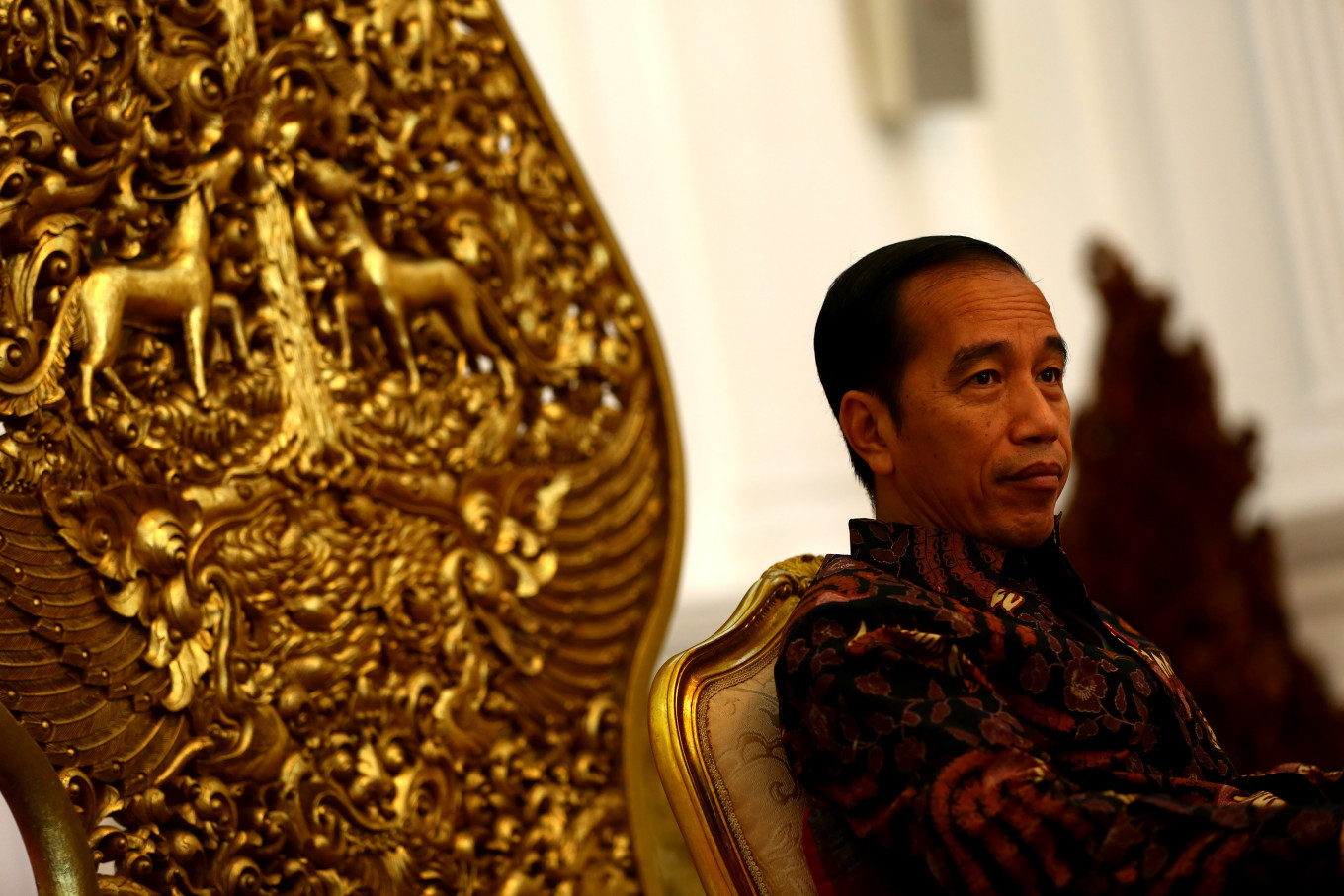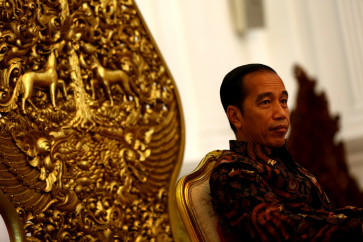Jokowi: Little Soeharto or ‘post-Java’ president?
Unlike Soeharto, who perceived himself a Javanese king, Jokowi has been called a “millennial” in his political thinking.
Change Size
 President Joko "Jokowi" Widodo during an interview with The Jakarta Post at the State Palace on June 11. (JP/Wienda Parwitasari)
President Joko "Jokowi" Widodo during an interview with The Jakarta Post at the State Palace on June 11. (JP/Wienda Parwitasari)
P
resident Joko “Jokowi” Widodo’s recent post of a Javanese saying raised questions on the role of Javanese philosophy in Jokowi's leadership style and policies coming into his second term, inviting comparisons to the quintessentially Javanese former president Soeharto.
Last Saturday, Jokowi posted a video containing the Javanese phrase “laman sira sekti, aja mateni“ (even though you are powerful, do not knock down others), echoing a postelection television interview in which he cited the saying as one of his key philosophies.
All seven of Indonesia’s presidents have been ethnically Javanese and thus influenced by Javanese culture to various extents, but none more so than Soeharto, who even published a collection of his Javanese philosophies entitled Butir-Butir Budaya Jawa (The Grains of Javanese Culture).
While Jokowi, a native of Surakarta, Central Java, has often personified the stereotype of a soft-spoken Javanese man, unlike Soeharto, he has rarely explicitly mentioned the influence of Javanese philosophy in his political decision-making prior to this year’s elections.
Nevertheless, the Javanese concept of power - as explicated in noted Indonesianist Benedict Anderson's 1972 essay “The Idea of Power in Javanese Culture" - seems to have influenced the President's political decisions in some of the same ways it influenced Soeharto.
A case in point is Jokowi's apparent instinct to minimize opposition and absorb political opponents such as the Gerindra Party into his own coalition - as Anderson wrote: "[t]he most obvious sign of the man of power is, quite consistently, his ability to concentrate [...] and to concentrate within himself apparently antagonistic opposites".
Gajah Mada University sociologist Aris Arif Mundayat said the President’s post was meant to express that he was “not in opposition to anyone”.








![A man walks across a pedestrian crossing near a billboard depicting named Iranian ballistic missiles in service, with text in Arabic reading “the honest [person's] promise“ and in Persian “Israel is weaker than a spider's web“, in Valiasr Square in central Tehran on April 15, 2024. Iran on April 14 urged Israel not to retaliate militarily to an unprecedented attack overnight, which Tehran presented as a justified response to a deadly strike on its consulate building in Damascus.](https://img.jakpost.net/c/2024/04/16/2024_04_16_149344_1713260233._medium.jpg)








